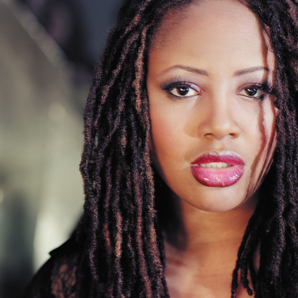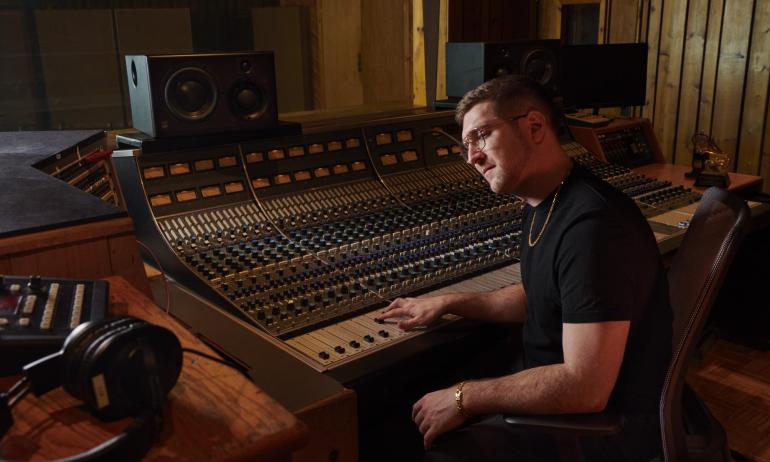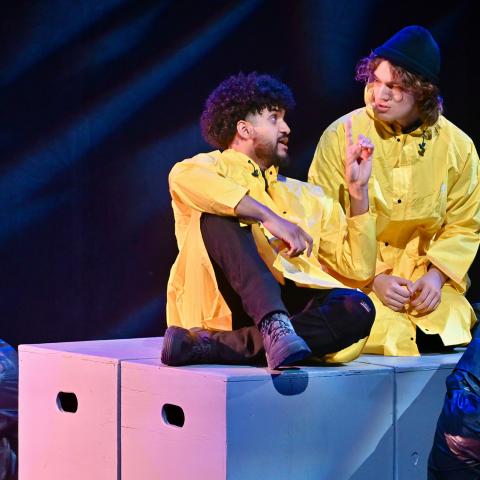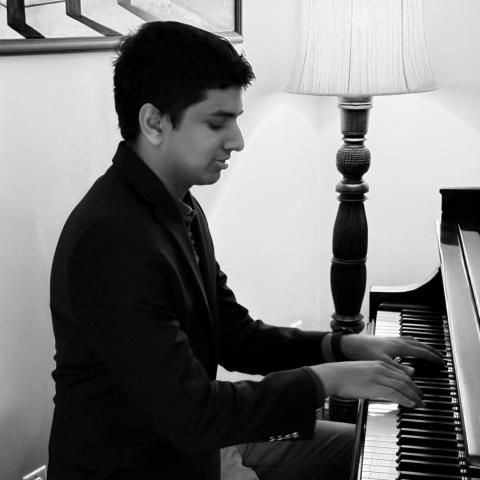alumni profile: Lalah Hathaway ’90
When you ask vocalist Lalah Hathaway what she’d record if she received a blank check from a record label, her eyes get wide, and she rattles off a long wish list of album ideas. She mentions a record of Christmas music with strings, one of jazz standards, an ambient, aural landscape recording done with vocals, and a collaboration with the Neptunes.

Lalah Hathaway ’90
Hathaway’s unwillingness to confine her musical desires is understandable given her amazingly flexible voice and the musical environment in which she grew up. She’s the daughter of the late hit singer, songwriter, and producer Donny Hathaway, and music was the focal point in her family’s Chicago home. “It’s really all we knew,” she says. “At three, I was taking piano lessons and listening to the radio all the time. The formats were a lot more open than they are now. You’d hear Chaka Khan; Earth, Wind & Fire; Crosby, Stills & Nash; the Bar-Kays; and Joan Jett on the same station.”
Consequently, for Hathaway, music is music; she doesn’t think in terms of stylistic boundaries. Additionally, she places a lot of value on being the best musician she can possibly be. That quest led her to Berklee in the late 1980s. “It was the perfect place for me,” she says. “And it provided the single greatest growth spurt I’d experienced. I found a lot in myself that I didn’t know was there and met a lot of musicians who really shaped the way I heard music. Just being where you could play and listen to music every day was great. That doesn’t exist in too many places.”
Hathaway put a premium on working hard at her craft. “I didn’t want to be known as ‘just a singer,’” she says, “the kind of person who comes to a session and wants to sing every song in B and can’t write a chart. I wanted to be a complete musician.” Hathaway was well on her way to consummate musicianship when she entered Berklee. She earned extremely high ensemble ratings upon her arrival, and during the spring break before she’d graduated, she made her self-titled debut album for Virgin Records.
Hathaway hit the road at a gallop after Berklee, taking a gig with bassist Marcus Miller’s band. Hathaway has continued to record and tour with Miller throughout the past 15 years and appears on eight of his CDs. “Marcus’s band is still my favorite one to work with besides my own,” she says. Hathaway has an impressive list of credits that includes singing on more than 100 recordings and appearances in the studio or onstage with such artists as Mary J. Blige, Dizzy Gillespie, Meshell Ndegéocello, Al Jarreau, Chaka Khan, Stevie Wonder, Joe Sample, and many more. (Visit http://www.lalahhathaway.com for a complete discography.)
Hathaway recorded her second album, A Moment, in 1994 and then took a 10-year hiatus before releasing another solo effort. “As black music was moving toward hip-hop, no one at Virgin Records knew what to do with me,” Hathaway says. “It was hard to find my place in the black music category. There’s this huge gap between hip-hop music and smooth jazz, and I’m kind of in the middle ground. I call what I do soul music, but the music industry has a hard time figuring out how to sell your records if you don’t fit neatly into a category.”
For 10 years, Hathaway continued to write songs and sought the right label for her music. Mesa/Bluemoon ultimately signed her and released Outrun the Sky in 2004. It’s perhaps Hathaway’s most personal musical statement to date, in that she wrote or cowrote nine of the disc’s 13 tracks. “That was different for me,” she says. “On the previous albums, the producer or the label has selected the songs. I’d say that 95 percent of what you hear on Outrun the Sky is what I wanted.”
As might be expected, the album traverses plenty of stylistic territory with the hip-hop-inflected “In the End,” the acoustic guitar–driven pop rocker “Stronger,” the bluesy “Admit It,” a melancholy ballad titled “Boston,” the relaxed r&b groove of the title track (which is dedicated to her father), and more. Throughout, Hathaway’s voice shines, fitting each tune regardless of the stylistic demands.
Hathaway has always maintained her own identity despite the long shadow cast by her father’s success. She finds a touching irony in the fact that they each had a new album out last year (Atlantic/WEA released Donny Hathaway’s These Songs for You Live! in June 2004). Hathaway says she is asked constantly if she would record a duet to one of her father’s tracks. “Everyone asks me about that as if it would never have occurred to me,” she says with a laugh. “My problem with doing something like that is that it has already been done. I spoke with Natalie Cole a few months ago, and she told me I should do at least one song like that. But I don’t feel comfortable about trying to take on his musical expression and put mine over it 26 years after the fact. It would really seem unnatural for me because he’s not here. I think we should let things be.”
While the idea of a duet with her father is out, recording a CD of his songs and collaborating with her sister are real possibilities. “Kenya sang on my last record. I think that eventually we will make a record together.” Add two more entries to that album wish list.




